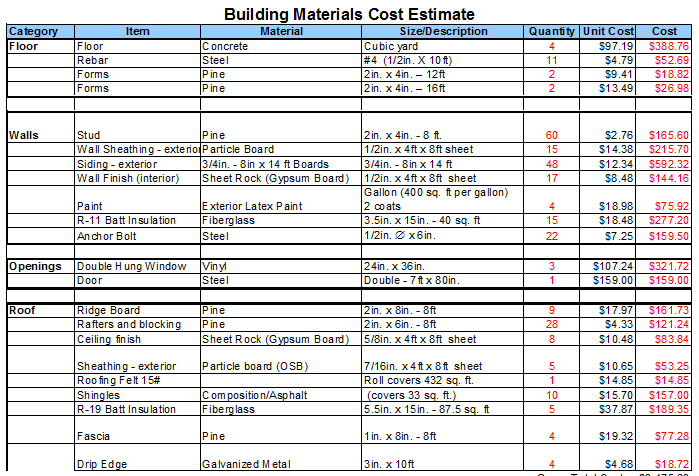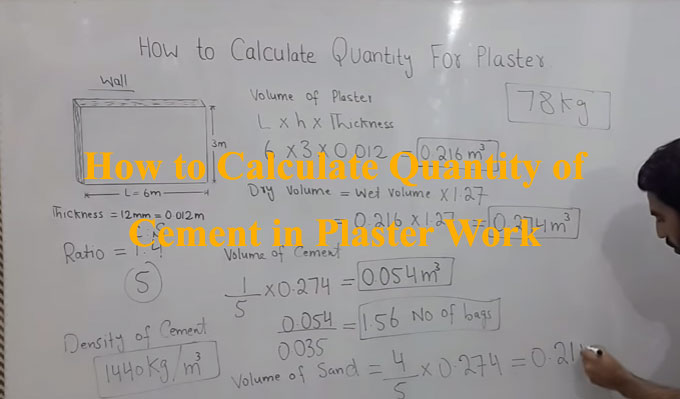Construction materials cost estimating | Step-by-step guide to estimate a construction project
What is Construction Materials Cost Estimating?
A Construction Materials Cost Estimate is a comprehensive calculation of the projected expenses for all materials required to complete a construction project. This includes everything from basic materials like cement, steel, and sand to finished products like doors, windows, and tiles.
Importance of Construction Cost Estimating
Budgeting and Financial Planning:
Accurate Costing: A precise estimate helps determine the overall project budget.
Risk Mitigation: By identifying potential cost overruns early, it allows for effective contingency planning and risk management.
Resource Allocation:
Efficient Procurement: A well-defined estimate ensures that the right amount of materials is ordered at the right time, avoiding shortages or excess.
Cost Optimization: It helps identify opportunities to reduce costs through bulk purchasing, discounts, or by using alternative materials.

Project Scheduling:
Material Availability: Knowing lead times helps create a realistic project schedule, preventing delays due to material shortages.
Delivery Planning: A detailed estimate supports efficient delivery planning, minimizing transport costs and ensuring materials arrive on time.
Contract Negotiation:
Informed Bargaining: A reliable cost estimate provides a strong basis for negotiating with contractors and suppliers.
Fair Compensation: It ensures that all parties are compensated fairly for their contributions.
Change Order Management:
Baseline Comparison: The estimate serves as a baseline for evaluating the financial impact of project changes.
Cost Control: It helps prevent unauthorized changes that could lead to significant cost increases.
In summary, a construction materials cost estimate is a vital step and first process for successful project management. It provides critical information for budgeting, planning, and decision-making, ultimately contributing to the project’s overall success.
Estimating Construction Materials Costs: A Step-by-Step Guide
1. Gather Project Details:
- Design Plans: Obtain detailed drawings and specifications that outline the scope of the project.
- Material Specifications: Identify the exact types, quantities, and grades of materials required.
- Project Schedule: Understand the project timeline, as material costs may fluctuate due to seasonal factors or market trends.
2. Identify Materials:
- Create a Comprehensive List: List all materials needed, including construction materials (e.g., concrete, steel, wood), finishes (e.g., paint, tiles, flooring), and equipment (e.g., appliances, fixtures).
- Quantify Materials: Accurately calculate the required quantities based on project dimensions and design specifications.
3. Research and Obtain Quotes:
- Supplier Selection: Find reliable local or regional suppliers.
- Request Quotes: Provide suppliers with detailed construction material specifications and quantities to get quotes.
- Compare Prices: Gather multiple quotes to ensure competitive pricing.
- Consider Discounts: Ask about bulk pricing or discount options.
4. Factor in Waste and Loss:
- Estimate Waste: Account for potential material waste during construction, considering factors like project complexity and labor skills.
- Include Allowances: Add a percentage to the material quantities to cover potential waste and losses.
5. Calculate Material Costs:
- Multiply Quantities and Prices: Multiply the quantity of each material by its unit price to get the total cost.
- Include Taxes and Fees: Add applicable taxes, transportation, and handling fees to the total cost.
6. Consider Contingencies:
- Allocate a Contingency Fund: Set aside a percentage of the total material cost for unexpected price hikes, shortages, or project scope changes.
7. Review and Update:
- Regularly Review: Periodically revisit the estimate during the project to maintain accuracy and adjust for any changes.
- Update Based on Changes: Adjust the estimate if there are modifications to the project design or material specifications.
Helpful Tips on estimating a construction project cost:
- Use Construction Software: Streamline the estimation process and track material costs with construction management software.
- Consult with Experts: If uncertain about materials or quantities, seek advice from experienced contractors or engineers.
- Negotiate Prices: Don’t hesitate to negotiate with suppliers for better pricing.
By following these steps and considering key factors, you can develop a reliable materials cost estimate that supports budgeting, planning, and managing your construction project effectively.
Download smartsheet’s simple construction estimate template




